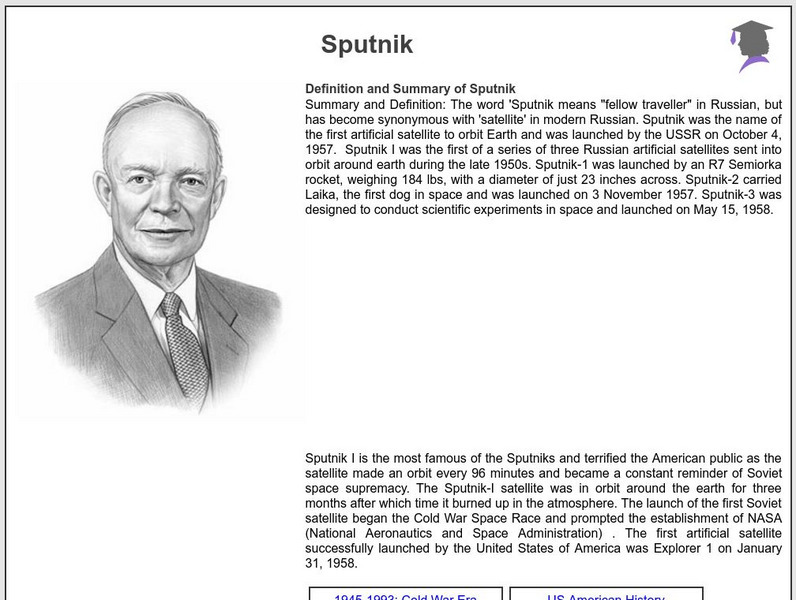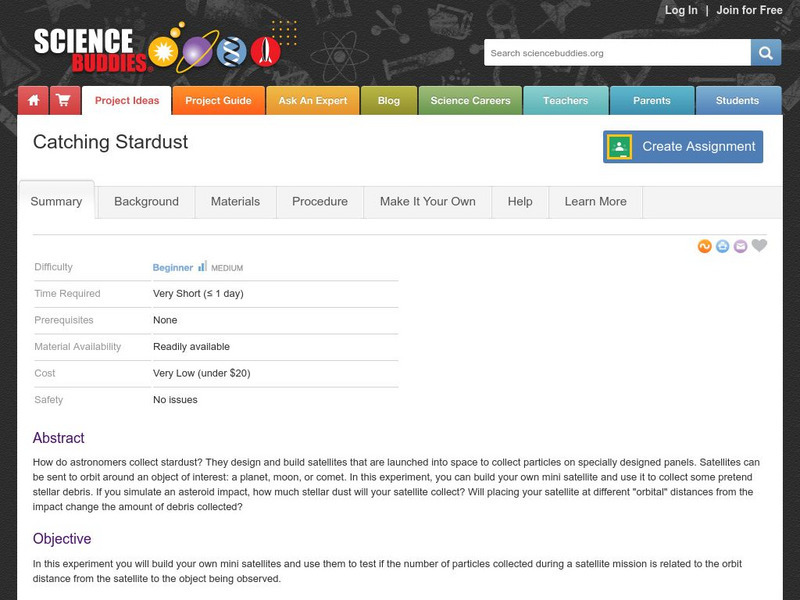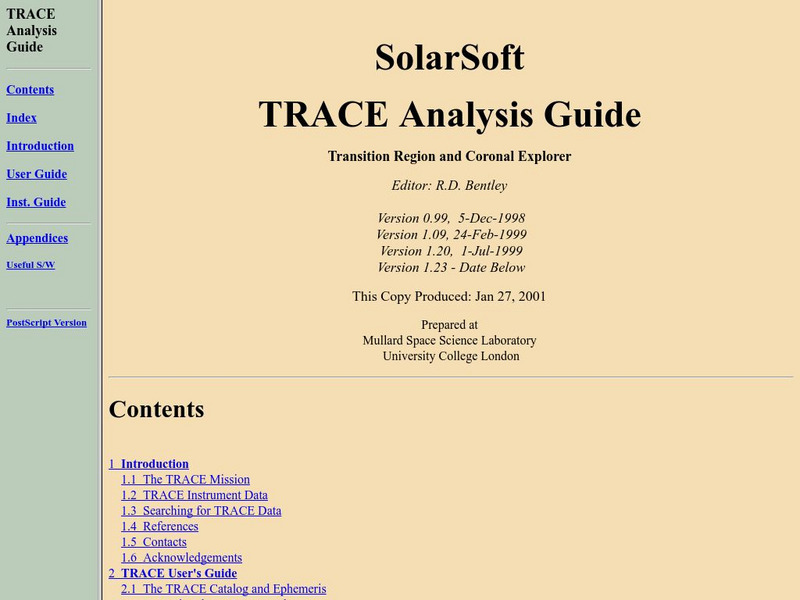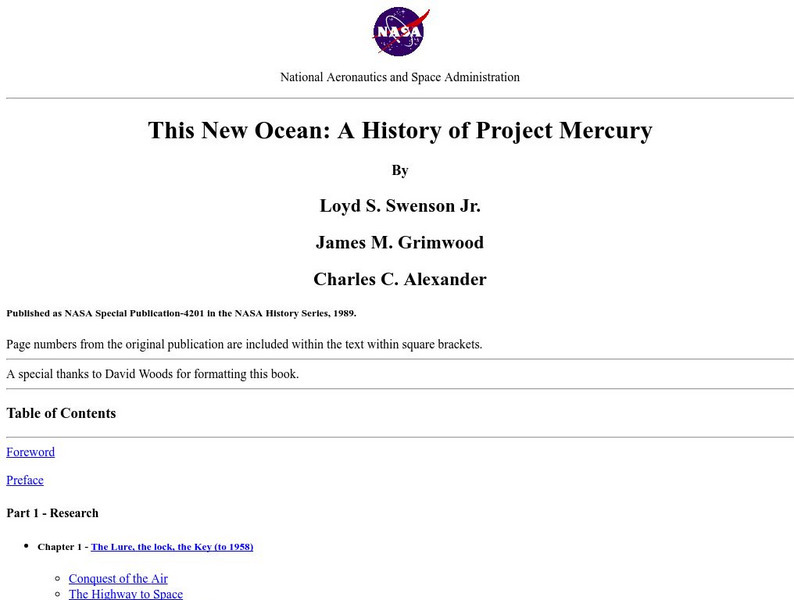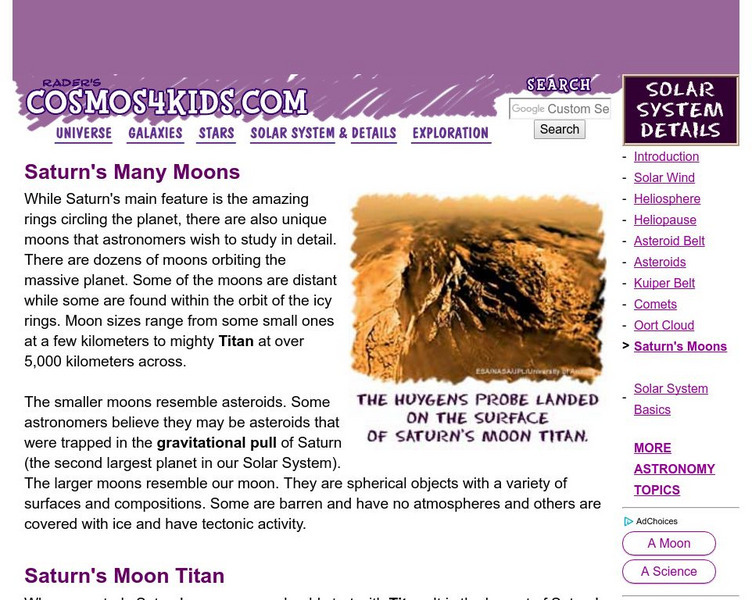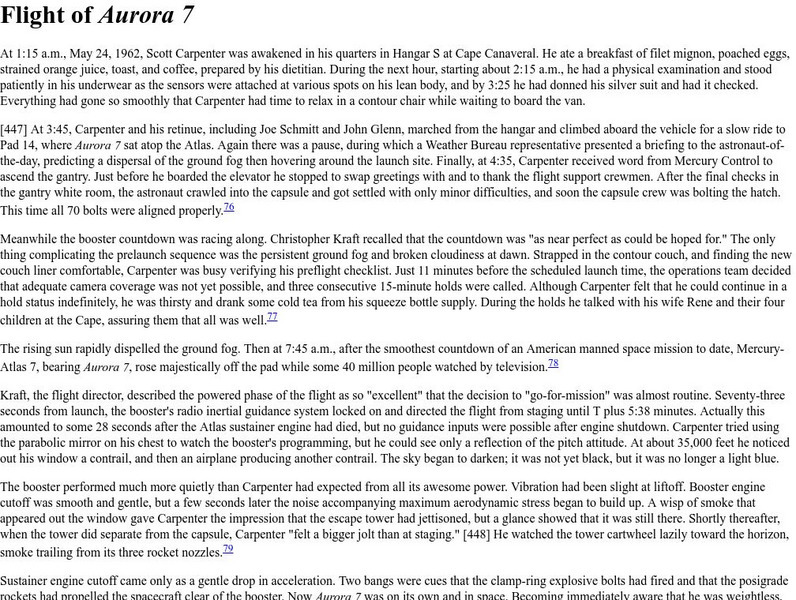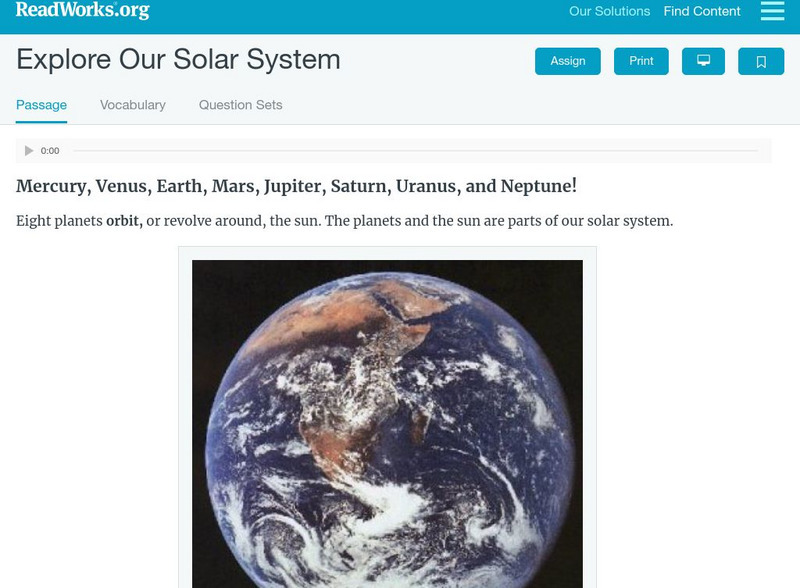Hi, what do you want to do?
Siteseen
Siteseen: American Historama: Sputnik
Detailed information on Sputnik, the first artificial satellite to orbit Earth, launched by the USSR on October 4, 1957.
Curated OER
Earth Orbits the Sun
This site from the National Aeronautics and Space Administration provides a fun project on rockets. "Nothing in space stands still. Everything either orbits around something else, or moves toward or away from something else. So how do...
Curated OER
Rocket Launched in Same Direction as Earth Orbit and Rotation
This site from the National Aeronautics and Space Administration provides a fun project on rockets. "Nothing in space stands still. Everything either orbits around something else, or moves toward or away from something else. So how do...
Curated OER
Deep Space 1 Rendezvous'd With an Asteroid
This site from the National Aeronautics and Space Administration provides a fun project on rockets. "Nothing in space stands still. Everything either orbits around something else, or moves toward or away from something else. So how do...
Science Buddies
Science Buddies: Catching Stardust
How do astronomers collect stardust? They design and build satellites that are launched into space to collect particles on specially designed panels. Satellites can be sent to orbit around an object of interest: a planet, moon, or comet....
TeachEngineering
Teach Engineering: Mission to Mars
The Mission to Mars curricular unit introduces students to Mars-the Red Planet. Students discover why scientists are so interested in studying this mysterious planet. Many interesting facts about Mars are revealed, and the history of...
NASA
Nasa: Planetary Photojournal: Jupiter
Looking for images of Jupiter or its moons? This is the place to start. Pictures are available from both Voyager missions, Galileo Orbiter and the Hubble Space Telescope. Choose from images of the planet, the ring, any of the Galilean...
Other
Historic Wings: "One Small Step" Race to the Moon
"One Small Step, The Race To The Moon" is a clear presentation of the story of the Moon landing program that the United States conducted during the 1960's and early 1970's. After launching the presentation click on the phases of the Moon...
Other
Solar and Astrophysics Lab: Trace Analysis Guide
This site provides a detailed overview of the TRACE (Transition Region and Coronal Explorer) satellite mission, data received, details about the instrumentation, and how to interpret the data.
Other
University of Leicester: Comets
A detailed look at comets. Content outlines our observational history, as well as the origins of comets and an explanation of the appearance of comets.
NASA
Nasa: This New Ocean
This site from NASA contains the text of the book "This New Ocean: A History of Project Mercury" by Loyd S. Swenson Jr., James M. Grimwood, and Charles C. Alexander.
NASA
Nasa: Slr and Gps (And Plate Tectonics and Earthquakes) [Pdf]
This slideshow explains how satellites are used to measure the movement of tectonic plates.
Cosmos 4 kids
Cosmos4 Kids: Solar System Details: Moons of Saturn
Explore the dozens of Saturn's moons orbiting the second largest planet of our solar system. Find out about the Cassini space mission which explored Saturn's largest moon, Titan.
Society for Science and the Public
Science News for Students: Small but Wise
Describes the WISE Project, which has an infrared telescope orbiting the Earth taking photographs of never before seen areas of space.
NASA
Nasa: Scott Carpenter the Flight of Aurora 7
This site from NASA provides a detailed description of the flight of Aurora 7 the second manned orbital flight of a Mercury spacecraft.
National Earth Science Teachers Association
Windows to the Universe: Our Solar System
Our solar system is filled with a wide assortment of celestial bodies - the Sun itself, our eight planets, dwarf planets, and asteroids - and on Earth, life itself! The inner solar system is occasionally visited by comets that loop in...
TED Talks
Ted: Ted Ed: What Are Gravitational Waves?
In September 2015, scientists witnessed something never seen before: two black holes colliding. Both about 30 times as big as our Sun, they had been orbiting each other for millions of years. A fraction of a second before the crash, they...
University of Maryland
University of Maryland: The Astronomy Workshop
Find tools to calculate astronomical distances and sizes, to view various Solar System models, to compare gravity's affect on weight, and more. A good place to find interesting facts, simple animations, and astronomy links to physics and...
University of Colorado
University of Colorado: Cassini Uvis Ultraviolet Imaging Spectrograph
This is the home page of the team that built the Ultraviolet Imaging Spectrograph carried by the Cassini mission to Saturn.
National High Magnetic Field Laboratory
Magnet Academy: Oersted Satellite, 1999
Named in honor of Danish physicist Hans Christian Oersted, Denmark's first satellite has been observing and mapping the magnetic field of the Earth.
Read Works
Read Works: Explore Our Solar System
[Free Registration/Login Required] This informational text passage shares facts about planets in the solar system. This passage is a stand-alone curricular piece that reinforces essential reading skills and strategies and establishes...





